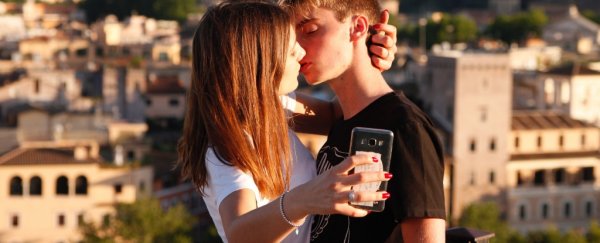No matter how good you think you look, there's something about posting a selfie that might frame you in a bad light.
An experiment on hundreds of real Instagram users has now found those who post a lot of selfies come across as less likeable, less successful, more insecure, and less outgoing. These negative perceptions were even more inflated when the selfies focussed on physical appearance, such as flexing in the mirror.
"Even when two feeds had similar content, such as depictions of achievement or travel, feelings about the person who posted selfies were negative and feelings about the person who posted posies were positive," says psychologist Chris Barry from Washington State University.
'Posies', in this context, simply mean photos in which you're posing while someone else takes the shot.
The findings are unique given that most research so far has focussed on the personalities behind Instagram posts, and not the people who judge them. Many of these studies have sought to find a link between narcissism and selfie-taking, but when Barry and his colleagues looked into this, they couldn't find anything - even though it seemed like they should have.
So if that was their perception, it seemed likely that other people were judging these photographs in a similarly negative way.
"That got us thinking that while posts on social media might not be indicative of the poster's personality, other people might think they are," recalls Barry.
"So, we decided to design another study to investigate."
Conducting an original experiment, Barry's new research enlisted two groups of undergraduates from two separate universities. The first group, which included 30 students, filled out a personality questionnaire and allowed the researchers access to their 30 most recent Instagram posts.
Each of their Instagram posts was then analysed to determine whether it was a selfie or a posie and if it included themes such as physical appearance, relationships, events, activities, or accomplishments.
These profiles were then sent to a second group of 119 students at another university, relatively far away, so they could rate these photos using 13 attributes, including things like self‑absorption, low self‑esteem, extraversion, and success.
The psychologists then sifted through the results to see if there were any elements of an Instagram post that could lead other users to make snap judgements. As a whole, those who posted more posies gave the impression of higher self esteem, an outgoing nature, success, friendliness, and likeability.
Selfies, on the other hand, were judged much more harshly. The researchers aren't exactly sure why that might be, but they suggest posies are more natural so the audience sees the person in the picture in a similar way to how they would see them in real life. In other words, their personality seems less contrived and more candid.
The researchers also suggest that because selfies are posted much less, when they are, they stand out in the feed and they may indicate something strange or unusual about the Instagrammer.
The last explanation is that selfies make you look self-absorbed, even if they weren't posted for narcissistic reasons.
Weirdly enough, the researchers found selfies were actually associated with lower grandiose narcissism and that posting a photo taken by another person is more clearly connected to self-reported narcissism. And the same pattern was found for the 'fear of missing out', aka FoMo.
"It may be that posing for an image and then posting it is indicative of a desire to present a relatively crafted image and to feel part of one's social circle," the authors suggest.
This extra effort to control how others see you may actually work, too. The researchers actually found higher neuroticism among those who were rated in a positive manner.
"Although speculative, such individuals may take great care to present an image on Instagram that is not off-putting or subject to social rejection; thus, they may be effective in conveying warmth and care toward others," they write.
Barry admits the results of this study are just a small piece of the bigger puzzle - and the study subjects were university students, which is always important to take into account - but they suggest social media can tell us more about perception than intent.
"While there may be a variety of motives behind why people post self‑images to Instagram, how those photos are perceived appears to follow a more consistent pattern," says Barry.
The findings were published in the Journal of Research in Personality.
